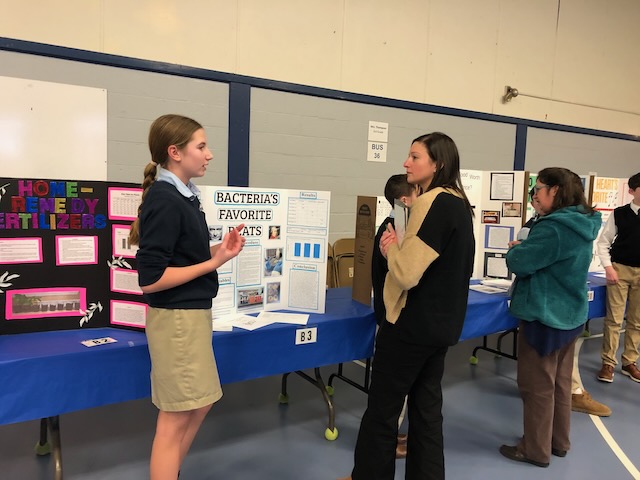Curiosity Unleashed: Students Showcase Innovative Projects at OLM Science Spectacular

Science Shines Bright: OLM 8th Grader Showcases Innovative Project
At the Annual OLM School Science Fair on January 23, eighth-grade student Katherine Laplante captivated attendees with her remarkable scientific exploration. Standing proudly beside her technology teacher, Jacqueline DeNuccio, Katherine presented a prize-winning project that demonstrated the creativity and analytical skills cultivated by Our Lady of Mercy's exceptional science curriculum.
The school's commitment to scientific education was on full display as Katherine explained her innovative research, highlighting the depth of learning and passion for discovery that characterizes the eighth-grade science program. Her project not only impressed her teachers but also inspired her fellow students to embrace scientific inquiry and critical thinking.
This annual science fair represents a pinnacle of academic achievement for OLM students, providing a platform for young scientists to showcase their research, problem-solving skills, and intellectual curiosity.

